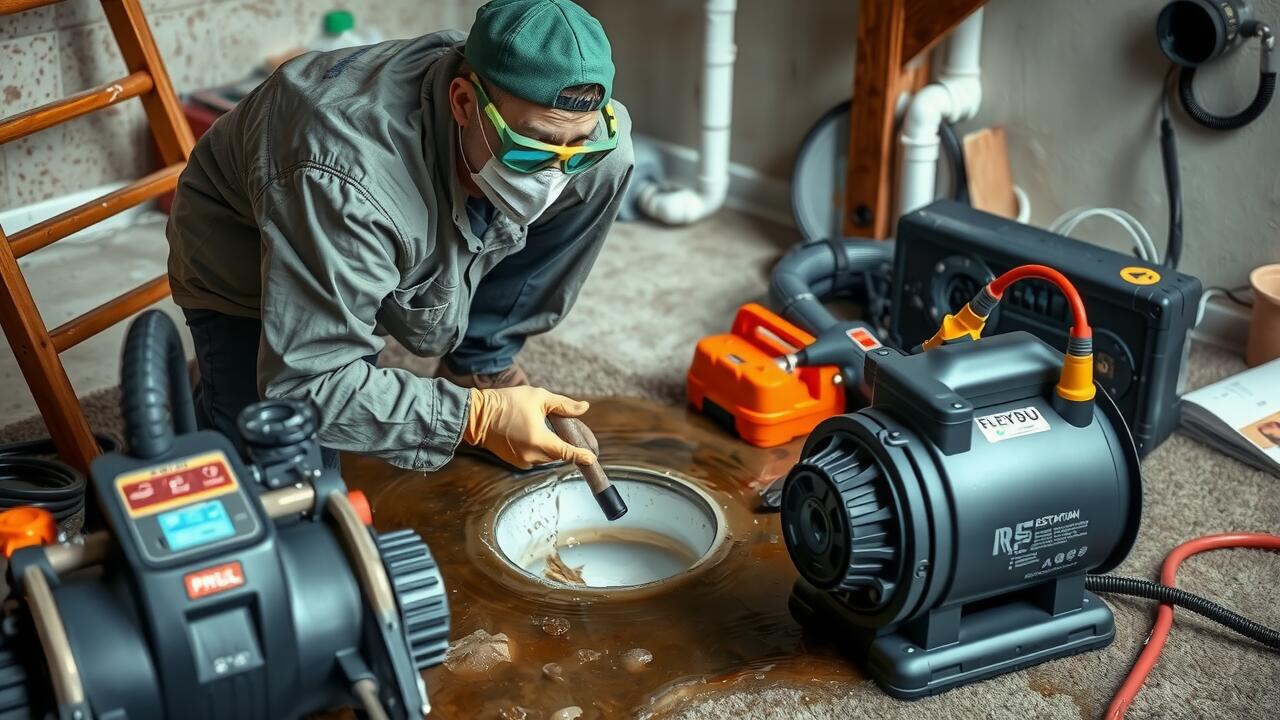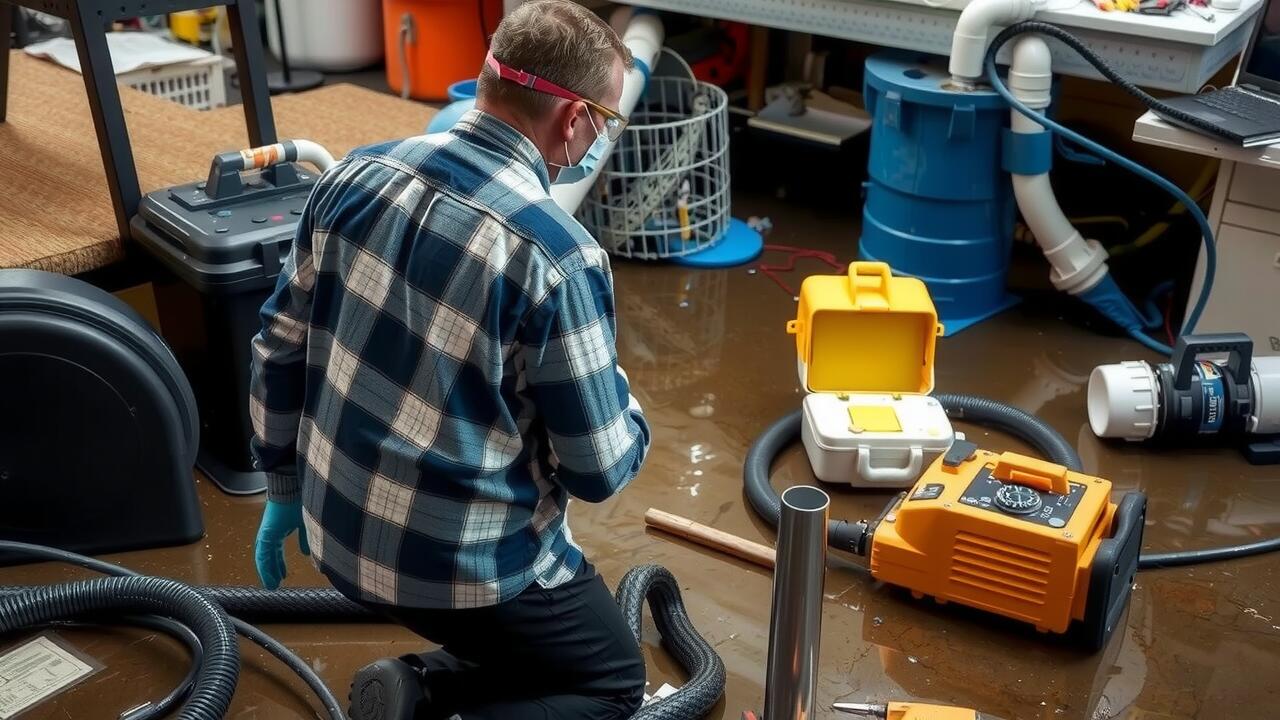
Keeping Gutters and Downspouts Clear
Regular maintenance of gutters and downspouts is essential for homeowners to prevent excess water from overflowing and potentially causing sewage backups. Clogged gutters can lead to water pooling near the foundation, increasing the risk of basement flooding and backup issues. During fall, leaves and debris often build up, making it crucial to clean them out frequently to ensure proper water flow.
DIY methods such as using a ladder and a scoop can effectively clear out most blockages. Alternatively, hiring a professional service can provide a thorough cleaning, reducing the likelihood of future issues. For residents in Urbancrest, Ohio, being proactive can save time and money in the long run, making sewage backup restoration less likely after heavy rains or snowmelts. Regular inspections can identify potential problem areas before they escalate, ensuring that the home’s drainage system remains functional.
Preventing Water Pooling
Proper drainage is essential to prevent water pooling around the home, as it can contribute to sewage backups. Start by ensuring the landscaping is graded away from the house. This slope helps direct rainwater away, minimizing the risk of it accumulating near the foundation. Installing French drains or utilizing swales can further aid in managing excess water. Regular inspection and maintenance of these systems are vital to ensure they remain functional.
Additionally, keep areas around outdoor fixtures like air conditioning units and downspouts clear of debris. Clogged drains can lead to water pooling and increase the likelihood of backups entering the home. If pooling does occur, timely sewage backup restoration in Urbancrest, Ohio, may be necessary to handle the aftermath. Homeowners should also monitor their yard for any signs of chronic water accumulation and address them promptly to maintain a dry and safe environment.
Awareness of Local Sewer Systems
Understanding the local sewer system is essential for preventing sewage backups in any residential area. Homeowners should familiarize themselves with the layout, capacity, and age of the sewer lines servicing their properties. Knowledge of these aspects can help identify potential issues before they become major problems. In neighborhoods like Urbancrest, Ohio, awareness of the municipal sewer infrastructure can offer insights into common challenges and necessary precautions.
Regular maintenance is crucial for safeguarding against backups. Homeowners should keep track of maintenance schedules and any known issues within their community. It is advisable to consult local utilities and service providers regarding the proper procedures and potential hazards. Awareness of local sewer systems not only helps mitigate risks but also streamlines the process in case of emergencies, such as during a situation requiring sewage backup restoration in Urbancrest, Ohio.
Knowing Your Municipal Regulations
Understanding local municipal regulations is essential for preventing sewage backups. Many municipalities have specific guidelines regarding wastewater management and plumbing systems. These regulations are designed to ensure proper flow and maintenance of sewer lines. Homeowners should take the time to familiarize themselves with these codes and any necessary permits for plumbing upgrades or modifications.
For residents dealing with issues like sewage backup restoration in Urbancrest, Ohio, compliance with local regulations can significantly impact the outcome of repairs. Many neighborhoods may have additional requirements based on local environmental factors, such as flooding risk or soil type. Engaging with local authorities or plumbing professionals can clarify these regulations and help homeowners make informed decisions regarding their plumbing systems.
Educating Household Members
Educating household members is crucial for maintaining a healthy plumbing system and preventing issues like sewage backups. Everyone in the home should understand what goes down the drains and the impact of improper disposal. Items such as grease, wipes, and food scraps can lead to serious clogs and backups. Regular discussions about proper disposal methods will go a long way in preventing plumbing emergencies.
It’s also important to teach family members about the signs of potential plumbing problems. Recognizing issues like slow drains or unusual odors early can help prevent more significant complications later. In neighborhoods prone to sewage issues, such as Urbancrest, Ohio, awareness becomes even more essential. Knowledge of basic preventative measures can significantly reduce the risk and need for services like sewage backup restoration in Urbancrest, Ohio.
Best Practices for Everyone at Home
Educating every member of the household about proper waste disposal is essential in preventing sewage backups. Everyone should understand what can and cannot be flushed down toilets or poured down sinks. Regular reminders and discussions about these practices can help instill good habits, reducing the likelihood of clogs that lead to backups. Additionally, implementing a household rule about monitoring what goes into the drains can significantly contribute to the overall health of your plumbing system.
Homeowners should also familiarize themselves with the signs of potential plumbing issues. Regularly checking for slow drains, unusual noises, or unpleasant odors can provide early warnings of a malfunctioning system. Being proactive can prevent small problems from escalating into major inconveniences requiring expensive sewage backup restoration in Urbancrest, Ohio. Encouraging open communication about any observed plumbing irregularities can foster a collaborative approach to maintaining a healthy and efficient home plumbing system.
FAQS
What are some effective ways to keep gutters and downspouts clear?
Regularly inspect and clean your gutters and downspouts at least twice a year, especially before heavy rain seasons. Remove leaves, debris, and any blockages to ensure water flows freely.
How can I prevent water pooling around my home?
Ensure your yard is graded away from your foundation, use drainage solutions like French drains, and consider installing sump pumps to redirect excess water away from your home.
Why is it important to be aware of local sewer systems?
Understanding your local sewer systems can help you identify potential issues, know the capacity and limitations of the system, and inform you about any maintenance schedules or upgrades that may affect your home.
How do municipal regulations affect sewage backup prevention?
Municipal regulations often dictate how plumbing systems should be designed, installed, and maintained. Understanding these regulations can help you comply with local laws and prevent potential sewage backups.
What are some best practices for educating household members about sewage backup prevention?
Hold regular discussions about proper waste disposal, avoid pouring grease down the drain, and teach everyone how to identify early signs of plumbing issues. Regularly sharing information can foster a proactive approach to prevention.
